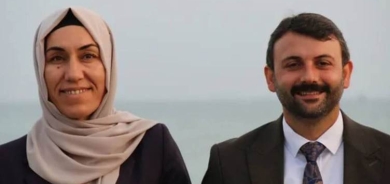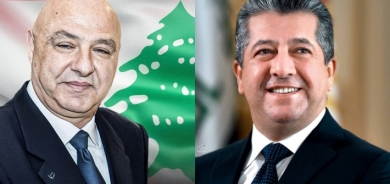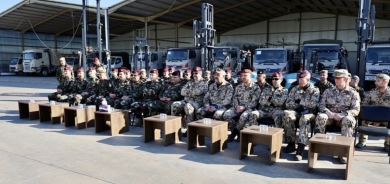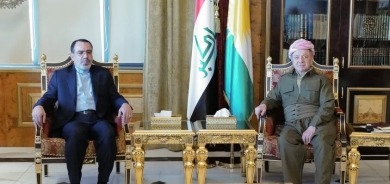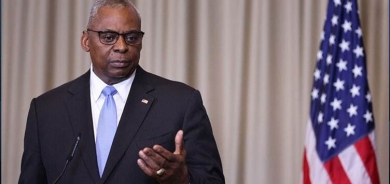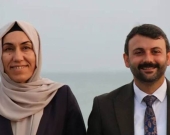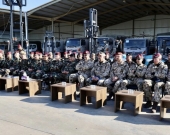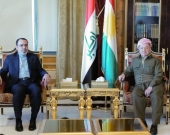The MHP’S contribution to the Kurdish issue: Has the MHP changed?

This time, more interestingly, the new approach was launched by Kılıçdaroğlu, leader of the main opposition Republican People’s Party (CHP). In short, Kılıçdaroğlu has suggested establishing a Societal Reconciliation Commission, comprising representatives of the all political parties currently in Parliament and wise people who have something to say on the matter. At first glance this could be seen as a very positive step. However, he insists on the participation of the Nationalist Movement Party (MHP), although this idea was rejected by the MHP. Is their participation really essential? Would the MHP’s presence in the commission contribute anything towards a probable solution? Although theoretically participation from all sides is ideal, my answer to this question, in this case, will be very simple and short: No. Furthermore, the participation of the MHP could worsen the situation.
Is there any change in the MHP’s stance with regard to the Kurdish issue? As Professor Gökhan Bacık puts it, the traditional and current image of the MHP involves being positioned between state and society. By this Bacık means somewhere “between the conservative AKP and the secular Kemalist CHP.” But it needs to be added that the recent attitude of the party and its elites’ statements are closer to those of the CHP. Those who know little bit about traditional Turkish state discourse regarding the Kurdish issue can easily figure out that the MHP’s position with reference to the Kurdish issue is entirely in line with the traditional state (or Kemalist) approach to the Kurdish issue. The party discourse towards the Kurdish issue is roughly as follows: First of all, Kurds are seen as ethnically Turk, “mountain Turks,” and according to them, “There is no Kurdish problem, the problem is Kurdish nationalism; but the problem has been created by the West, and Kurds have been used.” The nationalist demands by Kurds are seen exogenously dictated by Westerners to establish a “second Israel” in the region. Yet recognition of Kurdish ethnic identity, broadcasting in Kurdish, using Kurdish in instruction, etc., are seen as division or developments which would pave the way for the division of Turkey. Actually, at this point there are not many differences between the MHP and CHP. But the recent initiative, which is mentioned above, taken by Kılıçdaroğlu, can be seen as a sign of change in the CHP’s approach to the Kurdish issue. Kılıçdaroğlu is seen as being from the reformist side of the CHP. Since he assumed the party’s leadership, he has been struggling with the old cadres who are pro-statist. His new approach to the Kurdish problem can be seen as an abrupt departure from the CHP’s long-standing policy towards the problem.
Looking at Mehmet Şandır’s views
To see whether there is any sign of change in the MHP’s conception of the Kurdish question I will try to do a critical reading of an interview given by Mehmet Şandır, deputy leader of the MHP and a Turkish deputy in Parliament. In an interview with Rudaw, a Kurdish-associated news website, it can be deduced from Şandır’s statements that the MHP’s perception of Kurdish issue is as follows: It seems nothing much has changed. The only change seems to be in ideas related to the existence of Kurds. For example, while Şandır stresses the unity of Iraq, he also adds, “Arabs, Kurds and Turkmen must be recognized as the main ethnicities.” However, for the Kurds and other ethnicities in Turkey, he emphasizes the necessity of accepting Turkish identity and says that “other nationalities such as Kurds, Charkas and Georgians that live among the Turkish nation can achieve their basic rights if they accept Turkish identity,” which is entirely keeping with the traditional Turkish state conception. The rationale of this double standard about ethnicity in Turkey and Iraq is very obscure. It means while he supports the recognition of the Kurds as one of the main ethnicities of Iraq, he views same recognition in Turkey as a threat to unity. It should be hard to understand the logic behind this stance.
In a nutshell, it seems that with reference to the Kurdish question, the main party which represents the traditional state, the CHP, has been trying to change and adapt to the changing order in Turkey. However, the MHP has continued to represent the mindset of the forefathers of the republic; that is, in the words of Şandır: “...there is no such thing as the Kurdish issue. The issue of Kurdish nationalism exists. The issue of division and creating a Kurdish government exists.” It seems demands such as the recognition of their ethnic identity, education in their mother tongue, etc., are seen as acts of Kurdish nationalism but are the sociological core points of the Kurdish issue and basic human rights.
As Professor İhsan Dağı, a columnist for Today’s Zaman, points out, the MHP has been targeting nationalist and “secular nationalist” electorates from the Justice and Development Party (AKP) and CHP’s voter bases, with both groups being against such an initiative as the commission suggested by Kılıçdaroğlu. As such, the MHP is clearly holding to its position and strongly opposing such an initiative. I do not know whether this new step will be successful or not, but I know that there is no rationality in insisting on the necessity of the MHP’s presence in the commission. In other words, there is no need to meet and talk on the Kurdish issue with a party such as the MHP, which has seen the problem as being only security related. Furthermore, doing so will be a time and energy-consuming effort and may, instead of contributing to the solution, act to worsen it.
todays zaman


